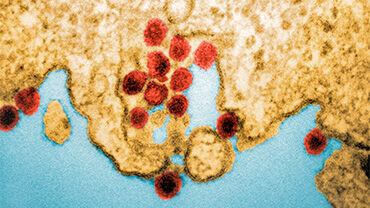Epidemiological update: Chikungunya – France – 2017
On 11 August 2017, France gave notification of an autochthonous case of chikungunya virus infection detected in the Var Department in southern France through the Early Warning and Alert System (EWRS).
As of 30 August 2017, France has reported six confirmed autochthonous chikungunya cases and one probable case all living in the same neighbourhood in Cannet-des-Maures (Var). The dates of onset of these cases range from 28 July to 19 August 2017. To date, there is no recent report of imported chikungunya cases in the Var or Alpes-Maritimes Departments that could account for the introduction of the virus in the area.
French authorities have implemented successive vector control campaigns, case finding, blood safety measures, community measures for personal protection and vector control, and widely sensitised the public and physicians to this cluster of chikungunya cases.
ECDC assessment
Aedes albopictus is established in the southern part of France and in regions of Albania, Bosnia and Herzegovina, Bulgaria, Croatia, Greece, Italy, the former Yugoslav Republic of Macedonia, Malta, Montenegro, Romania, Slovenia, Spain and Switzerland (see VectorNet map).
The report of a cluster of autochthonous chikungunya cases in areas of Europe where Aedes albopictus is established is not unexpected during the summer months, when environmental conditions are favourable for mosquitoes. In previous years, France detected several autochthonous clusters of chikungunya and dengue and has acquired experience in managing such clusters.
This cluster is currently limited to cases infected within a 200-metre radius during a period of three weeks. The identification of additional cases associated with this cluster through active surveillance is possible. However, further transmission in the area is unlikely as a result of the vector control measures implemented in the affected area. The risk for a large expansion of the transmission area is very low.
The conclusion of the latest ECDC rapid risk assessment, “Cluster of autochthonous chikungunya cases in France” published on the 24 august 2017 remains valid.






